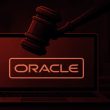The FBI is trying its best to convince an ambiguous regulatory body in Washington to modify its operation rules with the aim of possessing new powers to hack into and perform surveillance of computer systems all over the world.
In response, civil liberties groups are of the view that this rule modification will bring great power to the agency. They would then violate the first amendment privacy rights and would also cross strict limits to searches and seizures mentioned under the 4th amendment of the US constitution. The civil liberties groups have protested that the FBI is seeking to alter its cyber capacities with no congressional supervision.
On November 5, the regulatory body (to which the Department of Justice has applied for the rule change) and the advisory committee on criminal rules will meet for the first time to talk about the matter. Concerned technology experts and privacy advocates will talk to the panel to about the possible outcome if the said proposals were permitted to be applicable next year, according to a report by The Guardian.
Ahmed Ghappour who is an expert in computer law at the University of California, Hastings College of the Law said: “This is a giant step forward for the FBI’s operational capabilities, without any consideration of the policy implications. To be seeking these powers at a time of heightened international concern about US surveillance is an especially brazen and potentially dangerous move.” Ghappour will also address at the next week hearing of the case.
The proposed changes in operation of the FBI linked to rule 41 of the federal rules of criminal procedure, gives terms where the FBI can perform searches based on court-approved warrants. These are to be highly specific warrants on precise spots where suspected criminal activity is taking place and must be approved by the district judge.
However, the proposed change allows a judge to issue a warrant permitting the FBI to hack into any computer, regardless of its location. The objective is said to have been an effort to necessitate federal investigators to perform surveillance on systems which are operating with their location hidden.
According to a clause of the amendment a judge is allowed to issue warrants to get “remote access” to computer systems “located within or outside that district” in cases in which the“district where the media or information is located has been concealed through technological means”. These extended powers would be used at district level for criminal investigations as well (at present, terrorist cases are monitored).
If the amendment is approved by the regulatory group, the FBI would easily let loose its potential – known as “network investigative techniques” – on computer systems across US and beyond. The techniques include secretly installing malicious software, or malware, onto a system that would allow federal agents to be in command of the system, downloading anything from it, switching its microphone or camera on/off, and taking control of other computers in its network.
Chris Soghoian, Principal Technologist of the American Civil Liberties Union said: “This is an extremely invasive technique. We are talking here about giving the FBI the green light to hack into any computer in the country or around the world.”
An indication of the sort of operations that could increase immensely as a result of the new power was obtained this week when Soghoian exposed from documents gained by the Electronic Frontier Foundation (EFF) that in 2007, the FBI had produced a false Associated Press story as a deception to put in malware into the system of a US-based bomb plot suspect.
Civil liberties plus privacy groups are very bothered and worried about the FBI having great power through a disputable path. Soghoian said of next week’s meeting: “This should not be the first public forum for discussion of an issue of this magnitude.”
“This is an investigative technique that we haven’t seen before and we haven’t thrashed out the implications. It absolutely should not be done through a rule change – it has to be fully debated publicly, and Congress must be involved,” said Jennifer Granick, director of civil liberties at the Stanford center for internet and society.
Ahmed Ghappour has also presented the possibility of strong arguments & fights internationally if the amendment is approved. In accordance with the existing rules, there are no restrictions on the 4th amendment to US government surveillance activities in other countries since the constitution of America applies only to domestic territory.
The US government agrees that undercover searches should be done abroad only where the 4th amendment “basic requirement of reasonableness” applies. The department of justice states that it would “support the reasonableness of the search” with the issuance of new warrants to permit FBI hacking into computer systems whose place was unknown.
Ghappour worries that such a statement could lead to “possibly the broadest expansion of extraterritorial surveillance power since the FBI’s inception.” He also said: “For the first time the courts will be asked to issue warrants allowing searches outside the country”.
He cautioned that with short-term FBI investigations deflating the long-term international relationship building of the US state department, diplomatic effects could be grave. “In the age of cyber attacks, this sort of thing can scale up pretty quickly.”
Recently, in the prosecution of Ross Ulbricht; the alleged founder of the billion-dollar drug site- the Silk Road, another insight has been collected of the extensive power of US government thinking related to its cyber objectives. According to experts, the FBI hacked into the Silk Road server located in Reykjavik, Iceland, but the agency rejects the statement of experts.
US prosecutors have claimed that if they had hacked into the server without a warrant, it would still have been acceptable as “a search of foreign property known to contain criminal evidence, for which a warrant was not necessary”.







